Education bonds and not distance learning in pre-schools
The educationalist Maria Chiara Moneta begs us not to “ape” distance learning in nursery schools. “What is important is to cultivate the emotional bond on which the teacher-student relationship is based.”
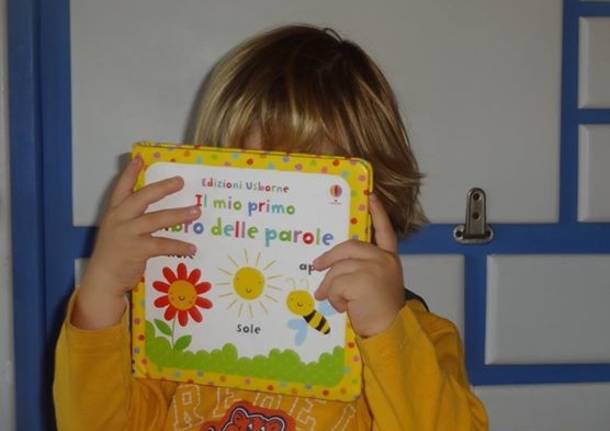
Exactly one year ago, I shared, with the Pedagogy Committee of the association of nursery schools AVASM-FISM, some considerations for all member schools, especially on the spread of some “distance learning” practices that were beginning to be adopted after the suspension of teaching in infant schools, due to the COVID-19 emergency.
In the meantime, this issue, which is still entirely topical, has been covered in depth by the ministerial document “Pedagogical guidelines on distance education bonds. A different way of doing crèches and nursery schools”, produced by the 0-6 Integrated System for Childhood Committee, of 6 May 2020.
Unfortunately, a year later, infant schools have been forced to suspend teaching again, and I think it is interesting to consider the topic again. While it would be ideal if children were once again able to attend their schools with their parents present, I think it is necessary to make it clear that nursery schools should not adopt distance learning. There is an urgent need for educational and pedagogical reflection, especially in view of the specific age of reference of the young “pupils” and of infant schools, which constitute part of pre-school education.
This detail is not insignificant, it is a special and privileged opportunity to apply an often neglected pedagogical truth: “learning” should always be a pleasure, there is no learning experience without fun, without motivation, without curiosity, without direct involvement … Remember that from birth, children “learn” a lot even if they “don’t do their homework and don’t study.”
Distance learning is definitely not what the young pupils in our schools need. It is much more appropriate to talk about “LEAD”, i.e. “Legami Educativi a Distanza” (“Distance Education Bonds”). This concept is recommended much more for children in nursery schools, “because the education aspect at this age is based on emotional and motivational bonds”, but personally, I would also extend it to the first years of primary school.
Remembering that education, always and in any case, remains the responsibility of parents, as schools we have a duty to assist families in their educational task, especially during this time of emergency, particularly, by creating spaces for listening and discussion, even remotely, and by remaining a clear and close form of support, because we can potentially offer and transfer pedagogical knowledge and words of support.
Before concluding, I would like to reflect briefly on the use of technology.
As many studies in the scientific literature suggest, we should all be aware that it is advisable to limit the use, by children in the age group we are responsible for, of tablets, PCs, smartphones and similar devices. Moreover, as the “LEAD” document also points out, devices should not be left to our children for them to handle them independently, to avoid “normalising” their excessive exposure to the unlimited world of the web.
With this, I do not want to demonise computer supports in any way, but I do want to keep a watchful eye on what we give children as an alternative to attending school in person. While understanding the undeniable difficulties that parents are forced to face, what with school and family, we should build a communication network that can act in a way that respects the specific characteristics of childhood. Why not focus our attention on the fact that, despite the epidemiological situation that places them in an unprecedented and unnatural situation, even today’s children continue to learn through play and learn by sharing practices with their peers and with adults?
Without detracting from the benefit of intersubjective exchanges and from the possibilities of virtual connection, in this time of crisis and exhausting waiting, the challenge we have to overcome is to think that the experiences that children have while learning at infant school cannot be reproduced in the children’s homes, via the computer screens. The time lost from childhood cannot be compensated for in any way by “aping” the distance learning required of older school students.
Translated by Bonanomi Vittoria, Graziani Edoardo, Mura Denise, Perinelli Giorgia
Reviewed by Prof. Rolf Cook
La community di VareseNews
Loro ne fanno già parte
Ultimi commenti
Stefano Montani su Contro l’indifferenza e la violenza: la musica scuote Varese in un grido per la Palestina
Felice su Sanpietrini staccati e resti di gavettoni: allarme maleducazione al Parco Mantegazza di Varese
Mastro SIM su Patentino obbligatorio per alcuni cani: la Lombardia vara la “save list”, ecco le razze coinvolte
Gloria Cerri su Patentino obbligatorio per alcuni cani: la Lombardia vara la “save list”, ecco le razze coinvolte
CarloP su Sanpietrini staccati e resti di gavettoni: allarme maleducazione al Parco Mantegazza di Varese
GrandeFratello su Sanpietrini staccati e resti di gavettoni: allarme maleducazione al Parco Mantegazza di Varese



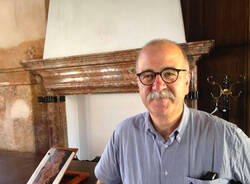

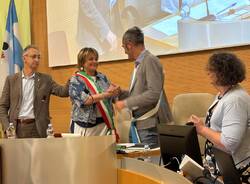
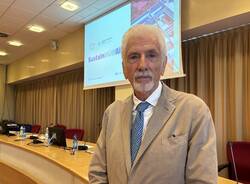


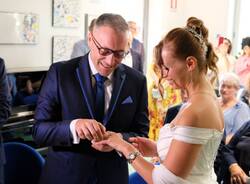

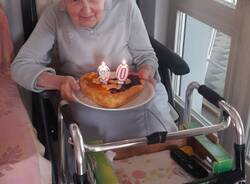




Accedi o registrati per commentare questo articolo.
L'email è richiesta ma non verrà mostrata ai visitatori. Il contenuto di questo commento esprime il pensiero dell'autore e non rappresenta la linea editoriale di VareseNews.it, che rimane autonoma e indipendente. I messaggi inclusi nei commenti non sono testi giornalistici, ma post inviati dai singoli lettori che possono essere automaticamente pubblicati senza filtro preventivo. I commenti che includano uno o più link a siti esterni verranno rimossi in automatico dal sistema.